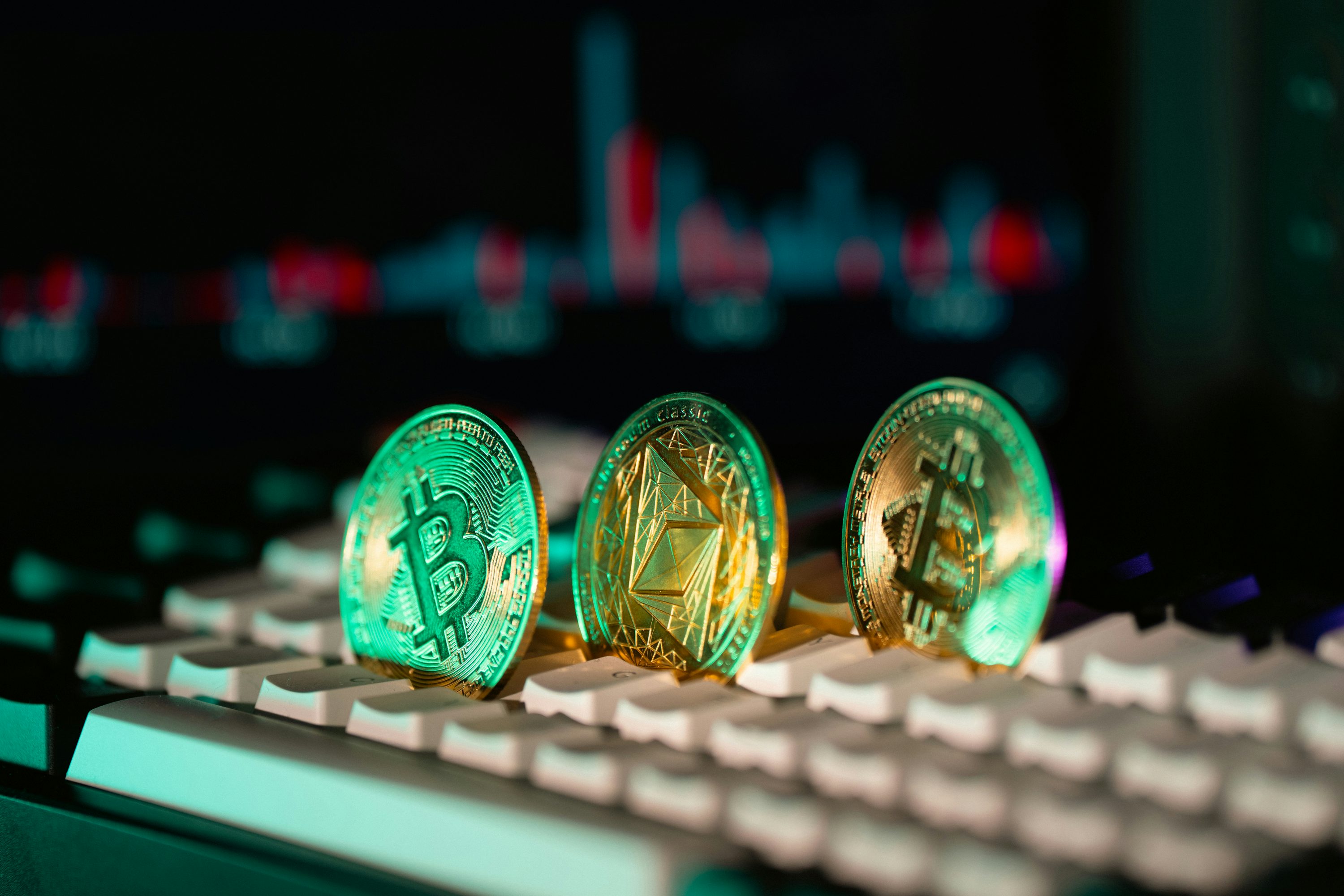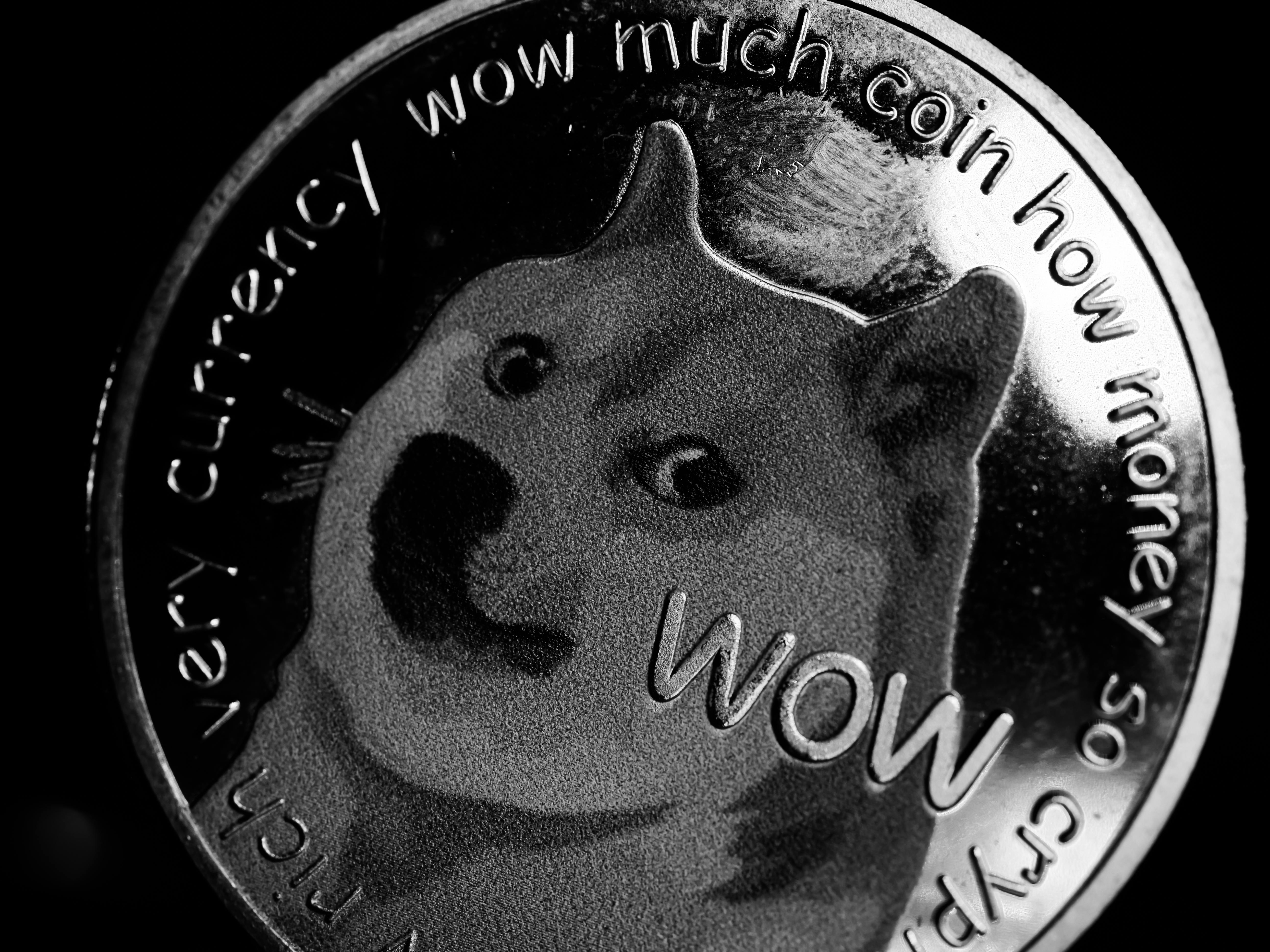Taylor Swift vs. Ronald Reagan: the Ticketmaster story
Photo illustration: Alex Parkin / The VergeThis special episode dives deep into Taylor Swift, Ticketmaster, and how a handful of policy changes in the 1980s led to one firm so thoroughly dominating the live events business in the United...
/cdn.vox-cdn.com/uploads/chorus_asset/file/24516162/Decoder_Ticketmaster_art_v2.jpg)
This special episode of Decoder dives deep into Taylor Swift, Ticketmaster, and how a handful of policy changes in the 1980s led to one firm so thoroughly dominating the live events business in the United States that Congress held a hearing in 2023 because Taylor Swift fans were upset about antitrust law. That sentence is wild. We’re going to unpack all of this with the help of some experts.
And since it’s a special episode, we’re trying something new. We produced a video you can watch in this post or on YouTube. Let us know what you think.
Okay, Ticketmaster and antitrust. Here we go.
The following transcript has been lightly edited for clarity.
Sen. Dick Durbin (D-IL): I’d now like to turn to the subject of today’s hearings. The ticketing and live entertainment markets lack competition, and they are dominated by a single entity, Live Nation.
Sen. Amy Klobuchar (D-MN): To have a strong capitalist system, you have to have competition. You can’t have too much consolidation, something that, unfortunately for this country — as an ode to Taylor Swift — I will say we know all too well.
Sen. Mike Lee (R-UT): I think Swifties have figured something out. They’re very good at getting their message across.
Antitrust (Taylor’s Version)?
Those quotes are from the Senate Commerce Committee hearing about Ticketmaster in January. Senators Durbin, Klobuchar, and Lee are talking about what happened to lots of people, including me. I basically spent an entire day trying to buy tickets to Taylor Swift’s Eras Tour, and like millions of other people, I had a terrible experience doing it.
The Ticketmaster site wasn’t equipped to handle all the demand, and it just kept crashing. People waited in the presale queue all day, only to get kicked out again. A few lucky people finally got to the front of the line, had tickets in their cart, and then got kicked out and had to start all over again. This happened to me.
If you went through all this, you kind of know that it was like playing the world’s worst video game. And the prize for winning was getting to pay outrageous Ticketmaster fees. Now, the weird thing is that this is far from the first time Ticketmaster has failed in this way, and it’s certainly not the first time fans of a major artist have been pissed at the company. People really dislike Ticketmaster. They have low expectations, and somehow, the company still blew it.
Now, in any normal sort of business situation, being both expensive and horrible at the thing you do, and then screwing up this badly on the biggest possible stage, would have consequences. Artists like Taylor Swift would just pick a different ticketing company next time, and a bunch of those companies would compete to offer the most reliable service with the best user experience for the lowest fees — you know, capitalism.
But Ticketmaster sucks, and it gets away with sucking over and over again because there’s fundamentally no competition for ticketing. You can complain all you want, but there’s no real alternative, so Ticketmaster can just make a bad product and get away with it. Worse, because there’s no competition, Ticketmaster can suck and charge ever-higher fees for sucking, and that’s exactly what’s going on.
Everyone is unhappy with Ticketmaster, but it still controls over 70 percent of the market for ticketing. In fact, it has had over 80 percent of the market for primary ticketing — that’s the first sale of tickets — since 1995. So how did Ticketmaster become the dominant market leader when it’s frustrating, loaded with exorbitant fees at best, and utterly incompetent at worst? The answer, of course, is Ronald Reagan.
Listen to Decoder, a show hosted by The Verge’s Nilay Patel about big ideas — and other problems. Subscribe here!
Sandeep Vaheesan: The Reaganite-Borkian counterrevolution in antitrust is an important reason why fans couldn’t get Taylor Swift tickets a month ago.
That’s Sandeep Vaheesan, legal director at the Open Markets Institute. To explain what he means, we have to back up a bit. In 1890, Congress passed the Sherman Antitrust Act, and President Theodore Roosevelt ran around using it to break up a bunch of monopolies. They called old Teddy the Trust Buster. In 1914, Congress clarified the Sherman Act with the Clayton Act, which specifically prohibits anti-competitive mergers. Up until the ‘80s, this was all working. The government was pretty aggressive about breaking up monopolies.
In 1978, law school professor Robert Bork wrote a book called The Antitrust Paradox, which essentially says we’ve been doing antitrust all wrong. Basically, all Congress really cared about in 1890 and 1914 was protecting consumers, and preventing big companies from getting really big prevents something he called economic efficiency. His argument is that big companies often become big because they’re good at what they do, and because being so big makes them efficient, that means people will eventually pay lower prices.
Now, here in 2023, I think we all know how well that worked out, but put your mind back to 1978. This idea was exciting and fresh. Bork says a company shouldn’t be broken up just because it’s big, and antitrust law should actually protect companies who win in the market and become big based on their superior ability.
So Bork proposed a new approach to antitrust law, which he called the consumer welfare standard. He said that courts and federal agencies, like the Department of Justice and the Federal Trade Commission, should look out for consumer welfare, which he mostly measured by prices. What that means for us is that unless a monopoly causes an increase in prices, it’s okay. That’s the Bork philosophy. Let the big businesses get big and stay big, as long as they don’t harm consumer welfare.
Now, Bork was a professor at Yale Law School when he wrote The Antitrust Paradox, but because he went to undergrad at the University of Chicago, he gets lumped in with a bunch of other law scholars and economists from Chicago with similar ideas. All of these theories come to be known as the Chicago School. A couple years later in 1980, Ronald Reagan was elected president. Reagan and his team were big fans of Robert Bork and the Chicago School. Why does that matter?
Here’s Sandeep again.
President Reagan remade antitrust in some major ways
SV: President Reagan was really a key figure in the history of antitrust, and he remade antitrust in some major ways by doing two things. First, he appointed Chicago School lawyers and economists to lead the Department of Justice and Federal Trade Commission, which are the two main public enforcers of federal antitrust law. These officials had a very different view of antitrust than their predecessors.
They believed antitrust should be exclusively about consumer welfare, which they described as low prices, high output — so more stuff, the better — and practices that limit the availability of stuff are bad. So they remade the philosophy of antitrust law.
Second, they said, “Actually, mergers are generally good. Mergers are how businesses get larger, attain economies of scale, and potentially even lower prices for consumers.” And so, they greatly scale back merger enforcement and adopted a set of guidelines that were extremely tolerant of mergers and acquisitions.
By this point, the Supreme Court has already started adopting Bork’s ideas, too.
SV: I should mention that some of the changes were happening even before Reagan took office in 1981.
Sandeep told us more about this.
SV: Presidents Nixon and Ford appointed five justices between them to the Supreme Court, and they effectively remade the Supreme Court in their two-plus terms in the White House. If you look at Supreme Court decisions in the late 1970s, there’s much greater emphasis on efficiency and the benefits of scale, and much less interest in preserving opportunities for small businesses and allowing small businesses to flourish and thrive in the economy.
In 1979, the Supreme Court decided Reiter v. Sonotone Corp. In that decision, the court officially endorsed Bork’s claim that Congress had actually intended to adopt the consumer welfare standard when it wrote the first antitrust law in the 19th century. Again, the consumer welfare standard is not in these laws. Bork just managed to convince everyone he could read Teddy Roosevelt’s mind, and that this is what old Teddy Bear wanted. It’s kind of incredible.
A side note: Bork cast such a spell on Reagan that Reagan nominated him to be on the Supreme Court. That nomination failed in part because Bork’s videotape rental history was leaked to the press, which eventually led to a federal law making your video rental history private. This is true. It’s also where the term “borked” comes from — the ‘80s.
Bork and the Chicago School were in vogue from the 1980s on, and really, they’re still how we think of antitrust law today. I went to the University of Chicago in the late ‘90s and early 2000s, and everyone knew the Chicago School was the winner. It was kind of wild, actually. No one cared about the football team, but we had rockstar economists. I loved it there. Anyway, all of this is the context in which Ticketmaster grew into the monopoly it is today.
Ticketmaster was started in 1976, but the modern era of Ticketmaster kicked off in 1982. That’s when the Pritzker family acquires a dominant stake in Ticketmaster. The Pritzkers bring in a new CEO named Fred Rosen, and the company focuses on software for the computerized ticket business. Rosen also started aggressively courting venues to sign exclusive contracts. His pitch is simple: “We’ll make more money.”
Here’s Dean Budnick, co-author of the book Ticket Masters: The Rise of the Concert Industry and How the Public Got Scalped.
Dean Budnick: He saw an opportunity, and so what he did is he went around, or his sales team went around, to all of the venues and said to them, “What would you think if we doubled the service fees?” They said, “Well, that seems like a pretty bad idea. Why would we want to do that? It’s going to discourage people from buying tickets.” What Ticketmaster said was, “Well, if we do it, we’ll share the revenues from this new elevated service fee.”
In exchange for the extra money that venues received from splitting ticketing fees, they agreed to exclusively use Ticketmaster to sell their tickets, and those fees are really how Ticketmaster makes its money. This fee-sharing arrangement is how Ticketmaster is able to compete with its main competitor at the time, a company called Ticketron. It started poaching Ticketron’s venue clients, and by 1991, Ticketmaster just went ahead and acquired Ticketron.
Here’s Yale School of Management economist Florian Ederer to explain more.
Florian Ederer: They were direct competitors. So when Ticketmaster acquired Ticketron, they were direct competitors, they were in the same industry, and hence, that is a form of horizontal integration. Whenever two companies that are direct competitors, whenever they are merging, there’s a strong concern about abuse of market power. Does this eliminate competition? Whenever we have elimination of competition, that may harm consumers, because suddenly there’s not another competitor around who could lower prices, who could offer better service, who could offer better quality.
Did you hear that concept? When a company buys a direct competitor, that’s called horizontal integration. This is important, because later Ticketmaster is going to do some vertical integration as well, but we’ll get to that.
Okay, so now it’s the mid-’90s. In 1995, Ticketmaster.com launched, and throughout the rest of the ‘90s and early 2000s, Ticketmaster slowly gained more and more power. It launched in an increasing number of countries around the world and inked partnerships for ticket resale with the NFL, the NHL, and the NBA. It even ticketed the Olympics.
In 2001, Ticketmaster struck a deal with Clear Channel Entertainment, which is now called Live Nation, to ticket their events. Clear Channel, or Live Nation, by this time was becoming America’s largest concert promoter. That’s the marketing for a concert, basically filling seats. But Live Nation also owns and manages the concert venues, so it really owns the whole live event pipeline.
In the 2000s, as music piracy upended the industry, big artists started signing massive exclusive deals with Live Nation. Jay-Z is a Live Nation artist. So are U2, Madonna, and Miley Cyrus. By 2007, Live Nation had a bunch of exclusive deals with huge artists, ownership of most major venues, and a lock on the concert promotion business. So then they did the next natural thing: they started working on a ticketing business to compete with Ticketmaster to which Ticketmaster responded, “Why don’t you just acquire us and let us do that for you?”
That brings us to 2010, and now it’s time to talk about vertical integration, which gets even less scrutiny than horizontal integration.
Here’s Florian.
FE: Vertical monopolies, or vertical integration, really, which is sort of an intermediate step to this, is when the players in one particular industry then integrate up or down the value chain into other inputs or potential buyers of the products that they’re selling. Then the extreme case, of course, is a vertical monopoly, where at all points of the value chain, there is only a single provider. So that would, of course, give that player a tremendous amount of market power, because not only are they the only seller, but they’re also the only buyer, and they’re controlling all of the inputs that are happening along this value chain.
Every aspect of a concert merged into one company
In 2010, Ticketmaster and Live Nation decided to merge and form Live Nation Entertainment. So Ticketmaster, which sells tickets, decided to merge with Live Nation, which owns venues and puts on and promotes concerts. Of course, promoters get a cut of that ticket revenue, so basically every aspect of a concert is merged into one company, and that company makes money at virtually every level of the stack. A lot of people think this created an unfair vertical monopoly, and the deal should have been stopped by the Obama administration.
Here’s Jack Groetzinger, CEO of SeatGeek, one of Ticketmaster’s few competitors, at that congressional hearing earlier this year.
Jack Groetzinger: Live Nation controls the most popular entertainers in the world, routes most of the large tours, operates the ticketing systems, and even owns many of the venues. This power over the entire live entertainment industry allows Live Nation to maintain its monopolistic influence over the primary ticketing market.
A handful of states actually sued over the Ticketmaster-Live Nation deal, as did the Justice Department. Senator Durbin talked about this at the hearing.
Sen. Durbin: The Justice Department and attorneys general from many states, including Illinois, sued to block the merger. The plaintiffs ultimately allowed the merger to go through, but put in place a consent decree with a set of conditions and divestitures designed to ensure competition.
In order for the deal to go through, Ticketmaster promised the Department of Justice it wouldn’t do anything anti-competitive. It was basically just a pinky swear — it’s pretty hard to enforce. The company was forced to sell one of its holdings, another ticketing company, to a rival firm, and it promised to license its ticketing software to another rival called AEG, which is a big promoter and competitor to Live Nation.
Here’s Sandeep on how weird all of this was.
SV: In hindsight, it’s incredible that the Obama administration allowed Ticketmaster to acquire Live Nation. They were both dominant in their respective markets, and under pre-1980s understanding of anti-merger law, the DOJ would have certainly sued to stop that acquisition. Actually, in all likelihood, the parties wouldn’t have even proposed the merger because they would’ve known they would face legal action.
The terms of the Live Nation merger established by the DOJ lasted until 2019 when they were reviewed. We talked about that with Dean Budnick.
Dean Budnick: In 2019, the Department of Justice again looked at the question of the merger between Live Nation and Ticketmaster, because a consent decree had been issued previously. In 2019, the government decided to renew that consent decree, essentially giving permission to this merger of these two companies until 2025.
There hadn’t been a dramatic change in terms of market dominance by Ticketmaster between those two periods of time. So at least the Department of Justice has examined this issue twice and decided, “Well, it seems like Ticketmaster does have traction here and is certainly the dominant player in the ticketing realm,” but on two separate occasions, the government has opted not to step in and do anything.
That brings us to today. Ticketmaster and its parent company, Live Nation Entertainment, dominate the market for live concerts.
DB: In 2022, if an artist did want to circumvent Ticketmaster, I think number one, it would be really hard if that artist were playing stadiums. Essentially most, but not all, of the stadiums have relationships with Ticketmaster.
As Dean told us, Live Nation’s dominance of ticketing and promotion has allowed it to shut out competitors. Jack Groetzinger, the CEO of SeatGeek, talked about this at the January hearing as well. He claimed that when venues switch to SeatGeek or another Ticketmaster competitor for their ticketing, Live Nation, which controls the artists and their promotion, stops giving concerts to those venues.
Jack Groetzinger: I would note that the DOJ report in 2019 found numerous instances of Live Nation threatening and retaliating against venues once they had moved away from Ticketmaster. In one case, the Live Nation president told the venue that they would, quote-unquote, “go nuclear” if they left, so the threat is real. It’s been documented. It happens across many venues.
With Ticketmaster’s growing dominance and lack of meaningful competition, ticket prices and the fees that accompany them have drastically increased. Customers are forced to pay those prices because so many venues have exclusive contracts with Ticketmaster or are owned by Live Nation outright.
Where this gets even deeper is that lots of people resell their tickets, and Ticketmaster has a big chunk of that market too. If you try to use another service like StubHub to buy a ticket that Ticketmaster originally sold, you still need to have a Ticketmaster account and enter their ecosystem. So now they have your data, even if you didn’t want to interact with them in the first place.
Here’s Senator Josh Hawley talking about that at the hearing.
Sen. Josh Hawley (R-MO): When you think about it, it’s really something. You’re forcing everybody who just wants to get this ticket on the resale market, who hasn’t bought from you to begin with, to become your customer in order to take possession of this ticket. I mean, that’s really something. Hats off to you, I guess, for being innovative and using your monopoly. But I have to tell you, from a competition standpoint, this really, really worries me, because this looks like a way to, again, further leverage your market power in one market to expand it into other markets, and I just don’t see how consumers win out of this exchange.
I have to be honest, it’s rare that I agree with Josh Hawley, but he’s right — consumers don’t win. Ticketmaster competitors have come up with some better alternatives though.
We’ve talked a lot about what’s wrong with Ticketmaster. The really frustrating thing about all this is that the bad Ticketmaster experience that’s loaded with fees is just not how it has to be. There are lots of ways to create better ticketing experiences for people, even for massive artists with huge demand like Taylor Swift. Ticketmaster tried to manage the demand for Taylor Swift tickets with verified fan codes, but that went horribly wrong.
Here’s Dean Budnick again.
DB: Ticketmaster gave out approximately 1.5 million codes, and then ultimately, it received approximately 14 million requests, but not all of those requests came from individuals who had codes. A lot of those were people who were trying to circumvent the fact that they didn’t have codes and were sneaking in. I mean, ultimately, the reason the on-sale sort of tanked as it did was because there were so many people who didn’t have codes who were trying to find their way into the system in an effort to purchase tickets.
By announcing all 52 dates at once, Ticketmaster created untenable demand that crashed its website.
DB: It would’ve been different if they had spread those out over the course of a week, which is often what happens. I think maybe on some level they were trying to push back against scalpers, because otherwise you could have people who want to resell the tickets all focused on a handful of shows. Then if you spread them out, you have those same people who want to get those tickets to those few shows coming in every day over the course of a week. But it just seemed a bit like a cluster-F to me in terms of what was going to happen and what the demands on the system were going to be.
So, Dean Budnick has ideas for how Ticketmaster could have done better. But he’s not the only one. A couple of senators at the hearing also had some ideas about how to regulate Ticketmaster into working better — which is basically the government redesigning how Ticketmaster works to make it friendlier to consumers.
That’s one way to do it. I guess. The other way is more competition.
You’ve already heard from some of the competitors in this episode: SeatGeek is another primary ticketing site that has struggled to compete with Ticketmaster. Ditto for Eventbrite and StubHub. In our reporting for this story, we also talked to Russ Tannen, president of DICE. DICE is a venture backed startup that’s made its tickets are nontransferrable — a QR code with your ticket appears right before the event to prevent scalping.
A lot of the decisions that Ticketmaster would have to make to not suck — no publicly traded company with a responsibility to its shareholders could reasonably make
In a functional market, some artists would choose to use DICE’s system that doesn’t allow resale, some would use SeatGeek, and some would still use Ticketmaster — and all of them would compete to build a fair system that made fans the happiest. Without that competition, a lot of the things that Ticketmaster would have to do to not suck require the company to make decisions that no publicly traded company with a responsibility to its shareholders could reasonably make.
Ticketmaster would have to increase the cost of app development and servers while limiting the profits from all those fees, and that’s just not going to happen unless something makes it happen. It’s really one option or the other.
We can accept that Ticketmaster is a monopoly and have a bunch of weirdos in Congress try to regulate it directly, or we can figure out how to inject some more competition into the market so Ticketmaster makes better choices just to stay in the game. See, what Bork and Reagan didn’t think about when they rewrote antitrust law, is that when companies get so big they have no competition, they have no more incentive to be good at what they do. They have no more incentives to be efficient.
Recently, there has been a lot of pushback against the Chicago School and Bork’s ideas in particular. The new chair of the Federal Trade Commission is named Lina Khan, and she’s written at length about the problem with Bork’s approach.
I actually talked to Lina on The Vergecast about her Yale Law Journal article “Amazon’s Antitrust Paradox.”
Lina Khan: The current framework in antitrust, the consumer welfare framework, really fails to capture forms of market power and forms of dominance that should be relevant to antitrust and do raise competition concerns.
It makes me optimistic that a person who thinks that is now running the FTC. There are other glimmers of hope under the Biden administration. Sandeep certainly thinks so.
SV: I’m hopeful. President Biden has made antitrust reform a key part of his administrative agenda and has appointed a number of progressives to the DOJ and the FTC, so the appointments have been positive. I think progress has happened a little bit slower than we all expected, but we’re seeing some positive signs. I think the Department of Justice has made reining in employer power a key part of its enforcement program. They’ve gone after many managers and firms for engaging in wage fixing, no-hire agreements, no-poach agreements.
But all that’s easier said than done. Under Commissioner Kahn, the FTC has aggressively gone after big tech, but its first attempts at lawsuits have been busts. The court keeps knocking them down because they’re just not agreeing with Kahn’s new version of antitrust. They’re stuck in the consumer welfare standard.
There’s another prong of attack going on over at the Biden Justice Department, which is investigating Ticketmaster and Live Nation, seemingly asking whether Live Nation Entertainment is a monopoly at all. Senator Klobuchar nudged the Justice Department to take action at the hearing.
Sen. Klobuchar: I know you, Ms. Bradish, talked about this idea of spinning off companies. We’ve all seen that as a remedy that would most likely be coming from the Justice Department. So all we can do here is put forward the evidence, and these are sworn testimonies back and forth under law, so that the Justice Department can look at this discussion.
Look, it seems like all this pressure forced Ticketmaster to at least do a little better with Beyoncé’s upcoming tour, but the underlying problems are all still there. We’ll see if the Swifties can push the Department of Justice into breaking up Ticketmaster and Live Nation. Anything is possible.
And we’ll see if Congress does anything to update our antitrust laws. Senator Klobuchar has been pushing to do exactly that for a while now. In the meantime, the question we should all be asking ourselves is, do we want to live in the Bork-Reagan world of weird, regulated monopolies, or do we want these companies to actually compete?
Decoder with Nilay Patel /
A podcast from The Verge about big ideas and other problems.

 BigThink
BigThink 
































